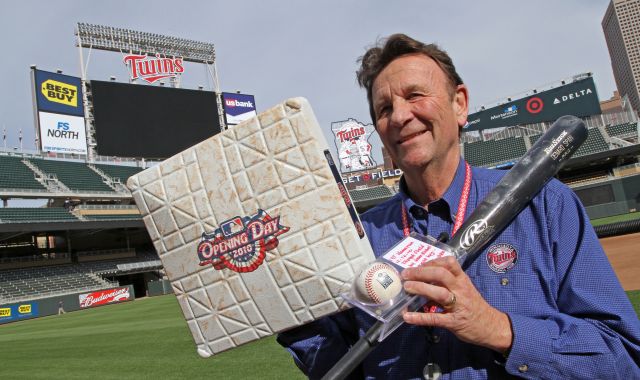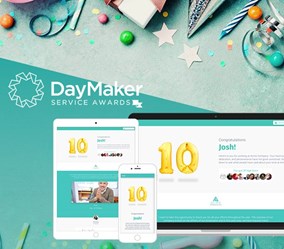Can Saying Thank You Change Your Life? Meet Clyde
Sep 18, 2016
Written by: Mark Hirschfeld
(View Author Bio)
Saying thanks helped this man land his dream job.

Meet Clyde Doepner.
He’s the curator of the Minnesota Twins. A recent article describes how he goes about sharing the history and memorabilia of his beloved baseball team.
But the story of how he got into position to secure this job is even better, which he shared with my wife and me when we attended one of his tours.
Back in the 1960’s, Clyde was a young teacher without a lot of extra spending money. A colleague from work gave him a pass to see a game, complements of the Twins. On the day of the game Clyde was walking around the stadium and he saw the owner, Calvin Griffith. Clyde approached him. He thanked the owner for providing the free passes, and told him how much he appreciated the opportunity to see the game.
Mr. Griffith said: “Young man, what’s wrong with you?”
Clyde was stunned by the response and didn’t know what to say.
Mr. Griffith said: “I’ve handed out thousands of these passes for years, and you’re the first person who told me thank you.”
Then the famous owner said: “Clyde, that pass isn’t for a very good seat. Why don’t you join my family and me in our box?”
Clyde did.
And a genuine and endearing friendship began between the owner and young teacher. Through Mr. Griffith, Clyde got to meet many of his baseball heroes and collected memorabilia. Over the years Clyde became known as a go-to expert on all things Twins collectables, and a few years ago he officially became team curator.
So how did Clyde Doepner come to the place where he ended up getting his dream job?
He said thank you.
Saying thank you is a powerful motivator. How powerful? Consider these insights about employee and manager recognition, based on BIW recognition program metrics:
- Employee turnover is 17.7% less among employees receiving at least one recognition message throughout their tenure.
- With a global retailer, employees who received recognition that was aligned to the key behaviors identified by the company were able to help their stores generate higher sales and customer satisfaction.
Recognizing employees is a difference maker.
What about Clark Griffith-- why was his reaction to Clyde’s kindness initially so wary? Perhaps it was because Mr. Griffith wasn’t used to receiving recognition—a simple act of appreciation wasn’t something a “leader” like him received.
Do managers need recognition?
According to a benchmarking study conducted with several of our clients for whom we are their recognition partner a key insight has emerged—recognizing managers is just as important as recognizing employees:
- Managers who were recognized consistently were far more likely to stay with the company than managers who didn’t receive recognition.
- Additionally, we found that new managers who receive recognition within their first 60 days send 146% more recognitions than managers who don't receive recognition—when managers are recognized, they’re more likely to return the favor in recognizing others.
The narrative of the life of Clyde Doepner was dramatically changed because he said thank you, and I would submit that Mr. Griffith’s life was also positively changed because of the simple act of kindness Clyde bestowed.
We need to a better job of thanking people, employees and leaders alike. Let’s get about offering more genuine and meaningful recognition. A life, including yours, may be changed because of it.
The best way to get started is to get in touch














